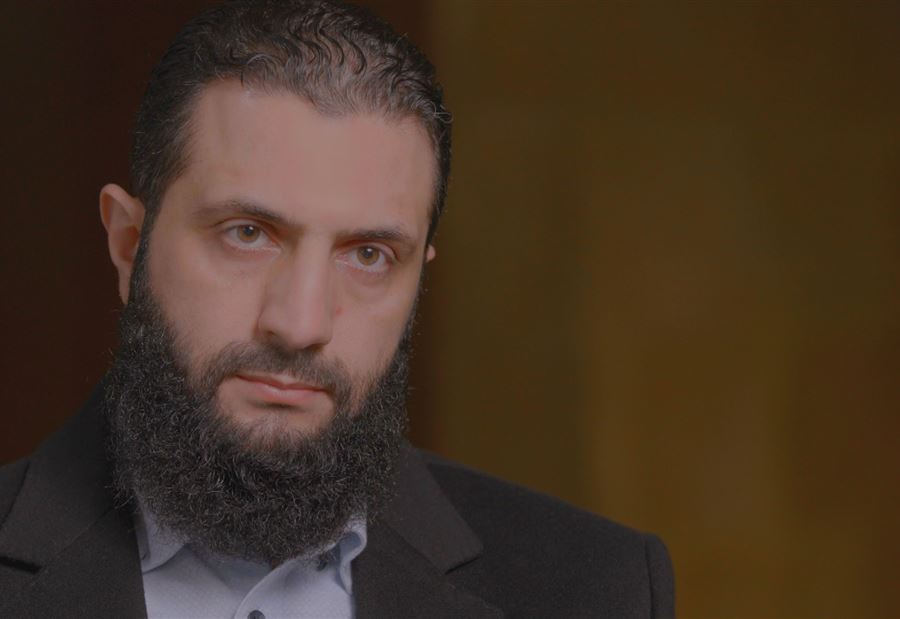الجولاني: المشروع الإيراني في المنطقة تراجع 40 عامًا إلى الوراء
في ظل التغيرات الجذرية التي تشهدها سوريا بعد سقوط النظام السابق بقيادة بشار الأسد، صرّح أحمد الشرع، المعروف سابقاً بـ”أبو محمد الجولاني”، قائد “إدارة العمليات العسكرية” التي تضم ممثلين عن عدة فصائل أبرزها “هيئة تحرير الشام”، بأهمية الحفاظ على التنوع والاختلاف داخل البلاد.
سوريا الجديدة: تنوع واختلاف صحي
في مقابلة مع صحيفة “الشرق الأوسط”، شدد الشرع على أن “سوريا بلد غني بتعدد مكوناته الثقافية والاجتماعية، ولا يمكن أن تسوده وجهة نظر واحدة”. وأضاف أن “الانتصار الذي تحقق ليس مكسبًا لفئة معينة على حساب أخرى، بل هو لجميع السوريين دون استثناء”، مؤكدًا على ضرورة الوحدة الوطنية لبناء سوريا الجديدة.
المشروع الإيراني: تراجع استراتيجي في المنطقة
وفي إشارة إلى الأوضاع الإقليمية، أشار الشرع إلى أن ما حققته الفصائل المعارضة أدى إلى “إعادة المشروع الإيراني في المنطقة 40 سنة إلى الوراء”، معتبراً أن ذلك يشكل خطوة كبيرة نحو تحقيق الأمن الاستراتيجي لدول الخليج والمنطقة.
وأضاف أن سوريا الجديدة “لن تكون منصة لزعزعة استقرار أي دولة عربية أو خليجية”، مما يعزز الثقة بقدرة السلطة الجديدة على تحقيق التوازن في العلاقات الإقليمية والدولية.
ملف المعتقلين والمفقودين: الأولوية الإنسانية
وحول ملف المعتقلين والمخفيين قسرًا، كشف الشرع أن منظمات متخصصة تُعنى بحقوق الإنسان قد بدأت بالمساعدة في تحديد مصير المفقودين. كما أعلن عن إنشاء وزارة جديدة تختص بمتابعة هذا الملف الإنساني، بهدف تقديم الدعم لعائلات المفقودين، وتسهيل إصدار الأوراق الرسمية مثل وثائق الوفيات وتوزيع الإرث.
إعادة هيكلة الحكم: دستور جديد وعدالة شاملة
أشار الشرع إلى أهمية صياغة دستور جديد يحكم البلاد، مبني على العدالة والمساواة بين كافة المكونات السورية. وأكد أن قصر الشعب، الذي كان مقر الأسد، “يجب أن يكون مفتوحًا أمام جميع السوريين”، مشيراً إلى شعوره بالغرابة وعدم الراحة أثناء وجوده فيه.
خطوات انتقالية نحو المستقبل
بعد سقوط الأسد في 8 ديسمبر الجاري، تم تكليف محمد البشير بتشكيل حكومة انتقالية تستمر حتى مارس 2025. وتشمل مهام هذه الحكومة إدارة شؤون الدولة خلال المرحلة الانتقالية، في حين يُرتقب عقد مؤتمر وطني شامل لبحث مستقبل البلاد ووضع أسس دستورية وقانونية جديدة تُراعي تطلعات الشعب السوري.
Al-Jolani: The Iranian Project Has Been Set Back 40 Years
As Syria experiences transformative changes following the fall of Bashar al-Assad's regime, Ahmad Al-Sharaa, formerly known as “Abu Mohammad Al-Jolani,” the leader of the “Military Operations Administration” — a coalition of several armed factions, most notably “Hay'at Tahrir al-Sham” — emphasized the importance of preserving Syria's diversity and plurality.
A Diverse and Inclusive Syria
In an interview with Asharq Al-Awsat, Al-Sharaa stressed that “Syria is a country rich in its cultural and social components, and it cannot be governed by a single viewpoint.” He added that the victory achieved is “not a triumph for one faction over another but a success for all Syrians without exception,” underscoring the need for national unity in rebuilding the country.
Strategic Retreat of the Iranian Project
Commenting on the regional situation, Al-Sharaa declared that the actions of the opposition factions had “set the Iranian project in the region back by 40 years.” He described this as a significant milestone in ensuring Gulf and regional security.
He also assured that the new Syria “will not serve as a platform to destabilize or threaten the security of any Arab or Gulf state,” thereby bolstering confidence in the new leadership's ability to strike a balance in regional and international relations.
The Issue of Detainees and Missing Persons
Addressing the pressing humanitarian issue of detainees and missing persons, Al-Sharaa revealed that specialized human rights organizations have started assisting in resolving this matter. He announced plans to establish a dedicated ministry to oversee the issue, aiming to identify the fate of the missing and provide legal support to their families, such as death certificates and inheritance documents.
A New Framework for Governance: Constitution and Justice
Al-Sharaa highlighted the importance of drafting a new constitution based on justice and equality for all Syrian communities. He emphasized that the “Presidential Palace,” formerly occupied by Assad, “should be open to all Syrians.” Reflecting on his presence in the palace, he humorously remarked, “Frankly, I don't feel comfortable at all.”
Transitional Steps Toward Syria's Future
Following the fall of Assad on December 8, interim leadership was established under Mohammad Al-Bashir, who has been tasked with leading a transitional government until March 2025. This government is responsible for managing state affairs during the transition period. Meanwhile, a comprehensive national conference is expected to take place, addressing critical issues and laying the foundations for a new constitutional and legal framework to meet the aspirations of the Syrian people.
Translated by international scopes team
المصدر: العربية
 International Scopes – سكوبات عالمية إجعل موقعنا خيارك ومصدرك الأنسب للأخبار المحلية والعربية والعالمية على أنواعها بالإضافة الى نشر مجموعة لا بأس بها من الوظائف الشاغرة في لبنان والشرق الأوسط والعالم
International Scopes – سكوبات عالمية إجعل موقعنا خيارك ومصدرك الأنسب للأخبار المحلية والعربية والعالمية على أنواعها بالإضافة الى نشر مجموعة لا بأس بها من الوظائف الشاغرة في لبنان والشرق الأوسط والعالم

